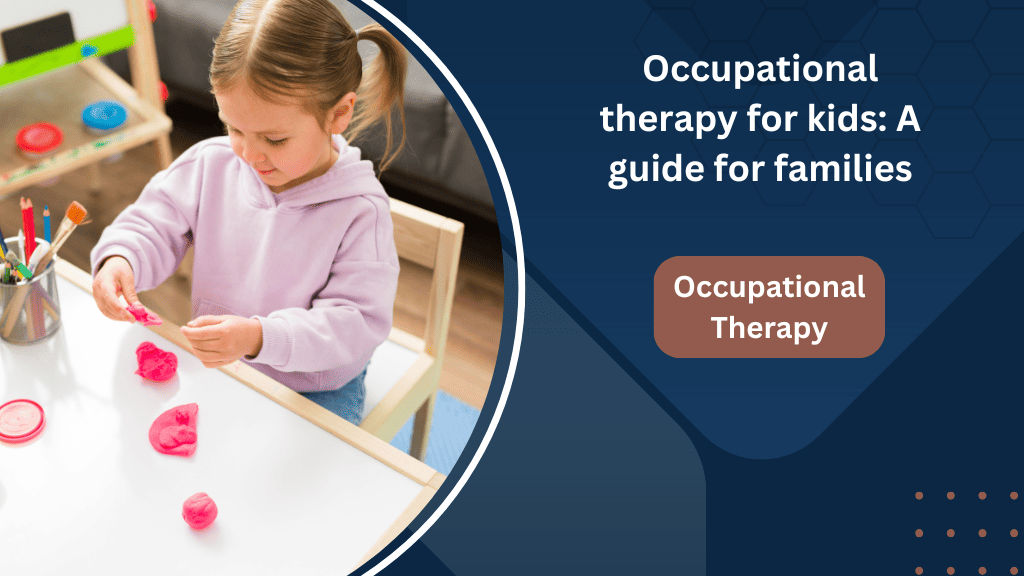How to prepare your child for a successful school year?

Starting a new school year can feel exciting yet overwhelming for children. Beyond school supplies, true preparation involves building healthy routines, confidence, and study habits.
Parents often wonder how to prepare their children for high school so they succeed academically and socially. With the right support—and by addressing both learning and developmental needs—you can help your child start the year strong, motivated, and ready to thrive.
At Kids Neuro Clinic, we specialize in helping children overcome neurological, developmental, and behavioral challenges and ensure they are well-prepared for school and life.
How to prepare your child for high school?
Preparing children for a successful school year starts with more than just supplies—it’s about building confidence, resilience, and routines.
Here are a few ways how to prepare your child for high school:
1. Establish routines
Consistent study, sleep, and activity schedules give children structure, helping them stay organized and manage their time effectively. A steady routine also eases stress by making daily tasks more predictable.
For children who find it challenging to focus or pay attention, structured routines are especially beneficial, as they promote predictability and help develop self-discipline.
Benefits of establishing routines:
- Improves focus and productivity
- Minimizes last-minute stress
- Improves academic performance
- Helps children feel more secure and confident
2. Create a positive learning environment
Set up a quiet, well-lit space where your child can work without distractions. A dedicated study area helps them concentrate and shows that learning is supported at home.
For children with learning or attention difficulties, a clutter-free, calm space makes it easier to focus and complete tasks.
Tips for a positive learning environment:
- Choose a dedicated study area
- Keep supplies and resources easily accessible
- Remove noise and digital distractions during study time
3. Set realistic goals and expectations
Encourage your child to set high but achievable goals. Clear, balanced expectations help them stay motivated without feeling overwhelmed, while also building confidence over time.
Goal setting provides direction and supports resilience to help children cope with setbacks and thrive under pressure.
Why this matters:
- Prevent burnout and stress
- Encourages consistent efforts
- Builds resilience and self-belief
4. Promote healthy eating and physical activity
Nutritious meals and regular physical activity give children the energy, focus, and stamina they need to perform well in school. Building these healthy habits early not only supports academic success but also promotes long-term well-being.
Since diet and exercise also impact mood, behavior, and focus, pediatric specialists often emphasize their importance in supporting emotional and cognitive development.
Healthy habits to encourage:
- Start the day with a balanced and filling breakfast
- Include at least 30 minutes of daily physical activity
- Limit sugary snacks and promote hydration
5. Focus on academic readiness
Strengthen core skills, build regular reading habits, and introduce effective study strategies. Tools like planners or digital apps can help your child stay on top of assignments.
Early assessment and personalized strategies, such as those guided by child neurodiagnostics, can improve academic preparation for children with unique learning needs.
How academic readiness helps:
- Builds organization and self-discipline
- Improves critical thinking and problem-solving
- Prepares them for new challenges ahead
6. Encourage extracurricular activities
Getting involved in sports, clubs, or creative hobbies gives children a chance to explore their interests beyond school.
These activities help them build confidence, discover what they enjoy, and learn to work with others, while also providing a break from schoolwork.
Benefits of extracurricular activities:
- Builds discipline, teamwork, and leadership
- Relieves stress and offers a sense of achievement
- Strengthens social connections and friendships
- Creates a healthy balance between school and personal interests
7. Support emotional and social well-being
Your child’s mental and social health matters just as much as academics. Talking openly about friendships, peer pressure, and stress helps them feel heard and supported.
For children dealing with anxiety, mood swings, or behavior challenges, simple strategies like journaling, practicing mindfulness, or relaxation exercises can make a big difference in managing emotions.
Ways to support well-being:
- Listen without judgment to their concerns
- Provides a healthy balance between academics and fun
- Strengthens social connections and friendships
8. Encourage independence and responsibility
Give your child the chance to take charge of their schoolwork, organize their schedule, and make everyday choices.
This not only builds accountability but also equips them to handle the growing responsibilities of high school and beyond.
Simple ways to build responsibility:
- Let them plan and track homework or projects
- Encourage them to manage study time
- Give age-appropriate household tasks to promote accountability
By incorporating these steps, you’ll not only learn how to prepare your child for high school but also ensure they develop the confidence and skills needed to excel both in school and in life.
Guiding your child towards a brighter future at Kids Neuro Clinic
By fostering independence, encouraging healthy habits, and providing emotional support, you give your child the tools to have a positive and successful school year.
At Kids Neuro Clinic, we believe every child has limitless potential. Our specialists in pediatric neurology, child neurodiagnostics, and pediatric psychology are dedicated to supporting children’s developmental, emotional, and academic journey and helping them thrive in school and life.
FAQ
Provide a structured routine, promote healthy eating and physical activity, support emotional well-being, and encourage extracurricular activities.
Create a positive learning environment at home, stay engaged with school activities, and maintain open communication with teachers.
Beyond academics, teach responsibility, problem-solving, and resilience. These skills help children thrive both in school and in everyday life.
Model optimism, celebrate small achievements, and remind your child to see challenges as opportunities to grow.
About kidsneuro
Kids Neuro Clinic, based in Dubai, is one of the UAE’s leading pediatric neuroscience centers, offering expert care for infants, children, and adolescents with neurological, developmental, behavioral, and psychological disorders. Our multidisciplinary team includes top-trained pediatric neurologists, psychologists, and developmental specialists from renowned institutions in the UK, Europe, and the USA, serving families across the UAE and GCC.


Unlocking the Power of Speech: How Speech Therapy Can Benefit Your Child

